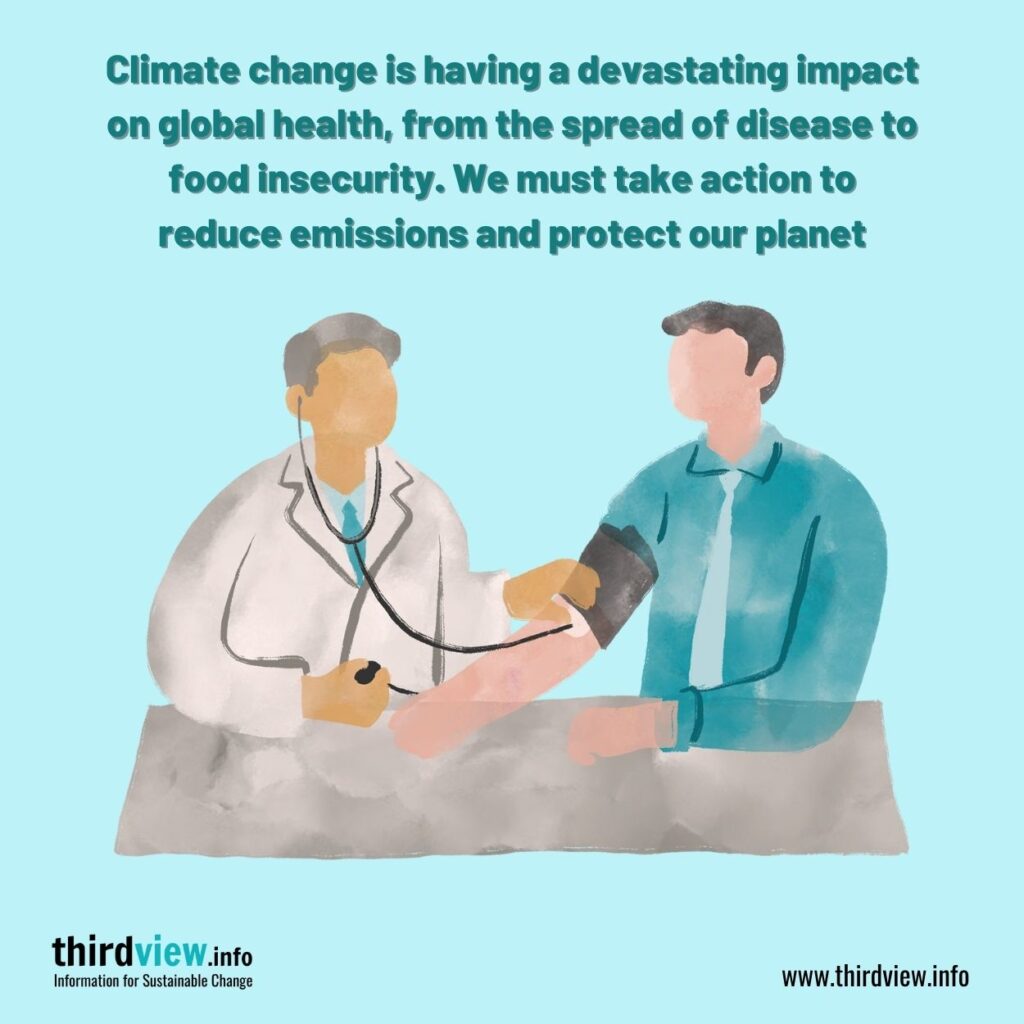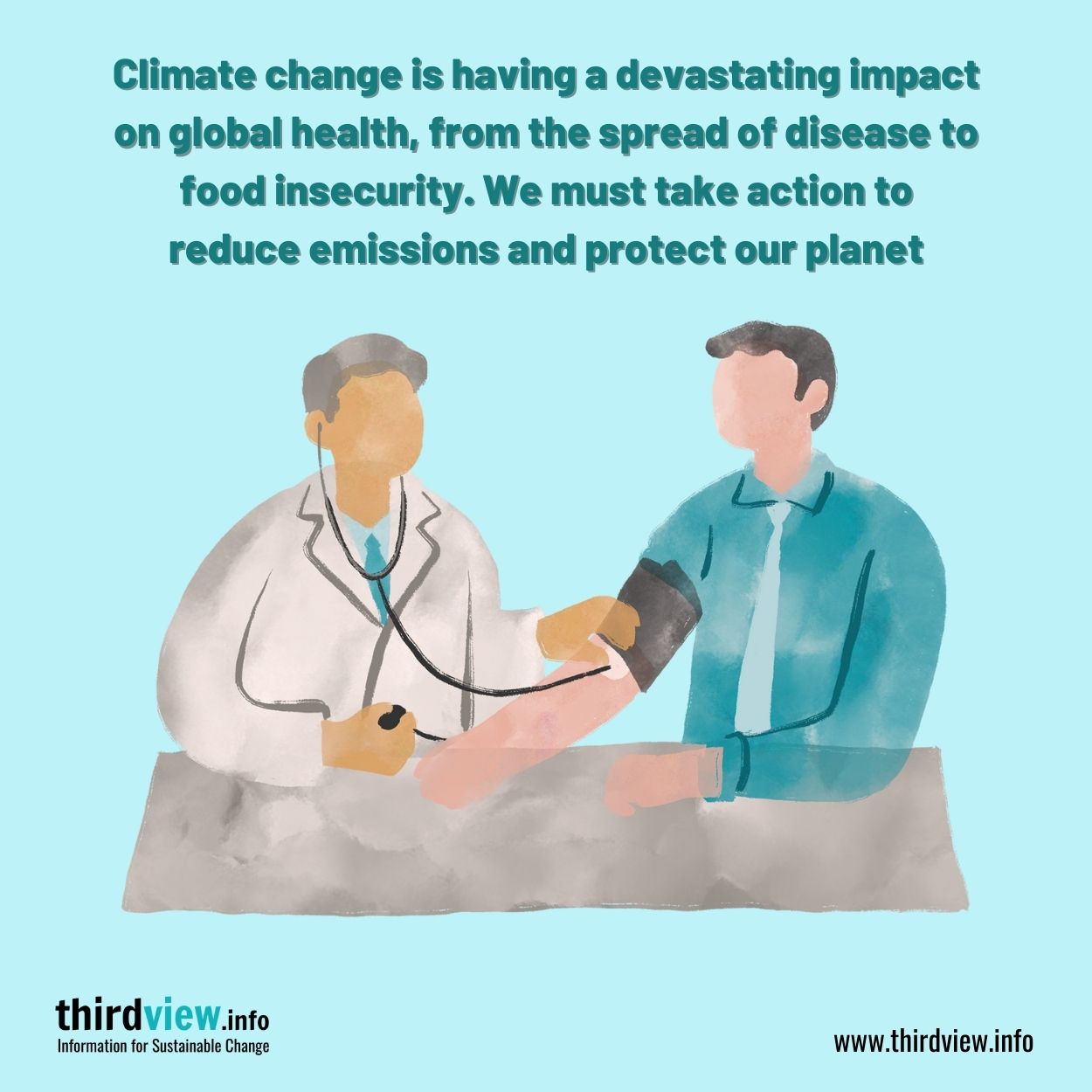Climate change is no longer just an environmental issue. It has become increasingly clear over recent years that climate change has a direct impact on human health, and this impact is becoming more noticeable all over the world. As temperatures rise and weather patterns become more extreme, global health can be affected in myriad ways. Let’s take a look at how climate change is impacting global health today.
The Spread of Disease
One of the most concerning impacts of climate change on global health is the spread of disease-causing organisms. Warmer temperatures make it easier for disease-causing microbes to thrive and spread, leading to increased cases of illnesses like malaria and West Nile virus in some areas. In other areas, rising ocean temperatures are causing coral bleaching events that are resulting in large die-offs of marine life, which can lead to increased levels of water-borne illnesses like cholera and typhoid fever.
Heat Stress
As temperatures rise, so does the risk of heat stress-related illnesses like heat stroke, dehydration, and heat exhaustion. These conditions can easily be deadly if left untreated, particularly among vulnerable populations such as elderly people or those with existing medical conditions. Heat stress can also cause long-term damage to physical and mental health if it persists for too long without proper treatment.
Air Quality Issues
Poor air quality caused by climate change-induced wildfires and industrial pollution can have serious negative effects on human health as well. Poor air quality has been linked to heart disease, lung cancer, asthma attacks, birth defects, and other respiratory issues that can be fatal if not treated properly. In addition to impacting physical health directly, poor air quality also increases stress levels which can lead to anxiety disorders or depression over time.
Food Insecurity
Finally, another major way that climate change impacts global health is through its effects on food security. Rising temperatures can lead to changes in crop yields due to decreased water availability or increased pests and weeds. This can lead to malnutrition in vulnerable populations who rely heavily on these crops for sustenance. Additionally, floods caused by extreme weather events can contaminate drinking water supplies with bacteria or other toxins, leading to increased rates of gastrointestinal illnesses such as diarrhoea or cholera.
Climate change is already having a profound effect on global health in many ways—from increased cases of infectious diseases to decreased air quality—and these effects will only worsen unless we take action now. We must reduce our emissions drastically if we are going to preserve our planet’s natural balance and protect human health from further harm due to climate change-related issues in the future. Understanding the effects that climate change has on our world today will help us develop strategies for dealing with these issues before they spiral out of control and threaten our very existence as a species.


